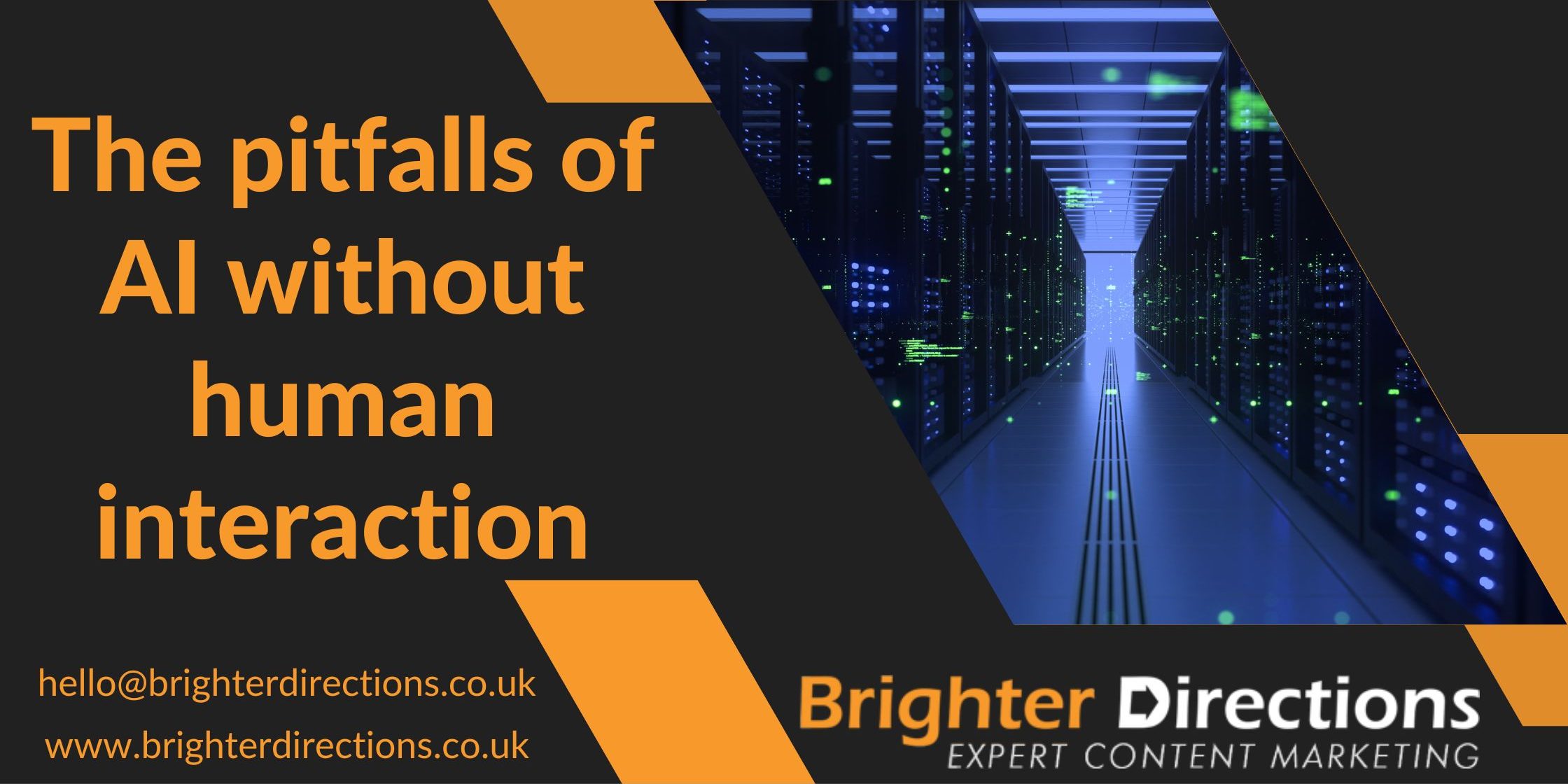In an era controlled by the rise of artificial intelligence, concerns about its potential to replace human input in the workplace have become increasingly common. While AI (Artificial Intelligence) offers the promise of efficiency and automation, it’s crucial to recognise its limitations, especially when it comes to the importance of human talent, emotional intelligence, and legal considerations.
Emotional Intelligence Shortage
One of the most significant pitfalls of replacing humans with AI is the lack of emotional intelligence. Humans possess an inherent ability to connect emotionally, essential in workplaces where client relationships are paramount. Artificial intelligence can mimic human intelligence but lacks a complex understanding of human emotions and experiences. Building emotional connections and fostering empathy are essential for business growth, a limitation in which AI fails.
Limited by Input Data
AI operates within the boundaries of the data that is input. It cannot handle situations beyond its programming, rendering it ineffective when faced with poorly planned circumstances. Unlike humans, who possess the power to reason, analyse, adapt, and improvise, AI is confined by the data it receives. Industries requiring decision-making and adaptability will continue to rely on human ingenuity.
Having Difficulty Being Creative
Creativity is the solid foundation of innovation, and it is a zone where AI struggles to keep up. Its creative process is restricted by the data it is exposed to, preventing it from venturing beyond established templates. In contrast, humans can be creative, source information from diverse avenues, and generate ground breaking solutions without predetermined data.
Absence of Soft Skills
The demand for soft skills in the workplace remains unbeatable. These skills encompass teamwork, critical thinking, communication, and interpersonal abilities, all of which contribute to professional success. Humans are equipped to develop and utilise these skills, a crucial asset in any industry. AI, with a lack of emotional intelligence and human-like interactions, falls short in this essential world.
Human Ingenuity Drives AI
Behind every instance of AI lies human intelligence. Humans design, program, and interact with systems. The data that artificial intelligence operates on is provided by humans, as are the skills required to operate and maintain these systems. The cooperative relationship between human expertise and artificial intelligence advancement underscores the irreplaceable role of humans.
AI’s Complementary Role
While AI continues to transform the workforce, its impact should be viewed as complementary rather than opposed. It excels at repetitive tasks, but the nuanced, complicated reasoning that humans bring to the table remains unmatched. The future envisions a constructive interaction between humans and AI, where the evolving demands of the workforce create new opportunities.
Fact-Checking and Moderation
AI, even in advanced forms like Chat-GPT, lacks the insight and reasoning abilities to fact-check and match information accurately. Human moderators are required to ensure accuracy and eliminate biases. This highlights the growing importance of research skills and human intervention in maintaining the integrity of artificial generated content.
The incorporation of AI in the workplace should be a strategic collaboration rather than an attempt at full replacement. The human touch, emotional intelligence, creativity, and nuanced decision-making are irreplaceable aspects that AI cannot replicate.
At Brighter Directions, we recognise the unique value of both AI and human expertise, creating a dynamic blend that moves businesses forward. To explore how AI and human collaboration can redefine your marketing and PR strategy, reach out to us at hello@brighterdirections.co.uk.
Let’s navigate the future together, integrating the best of technology and human ingenuity.







